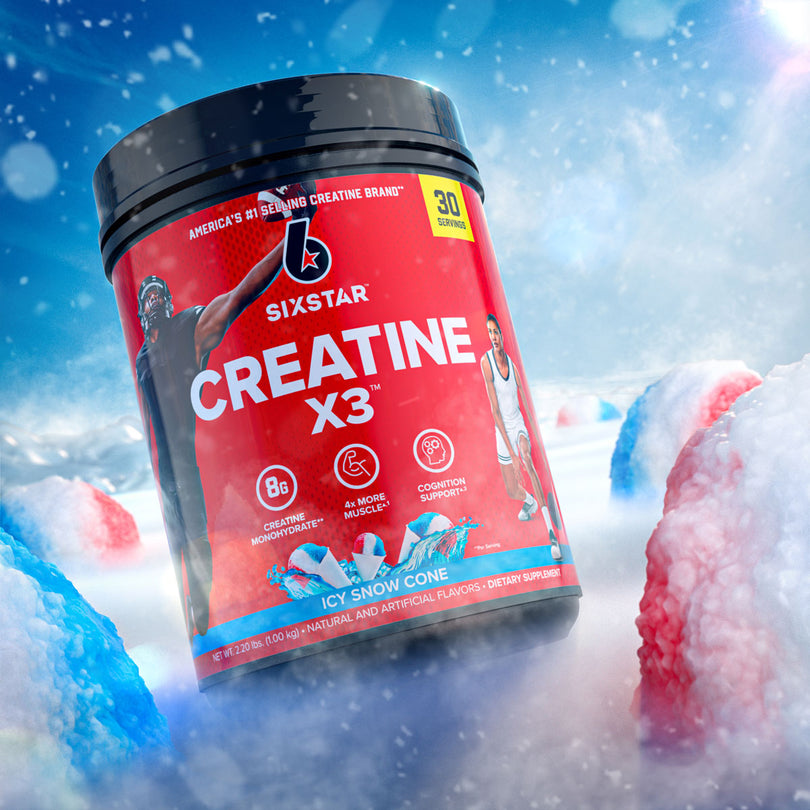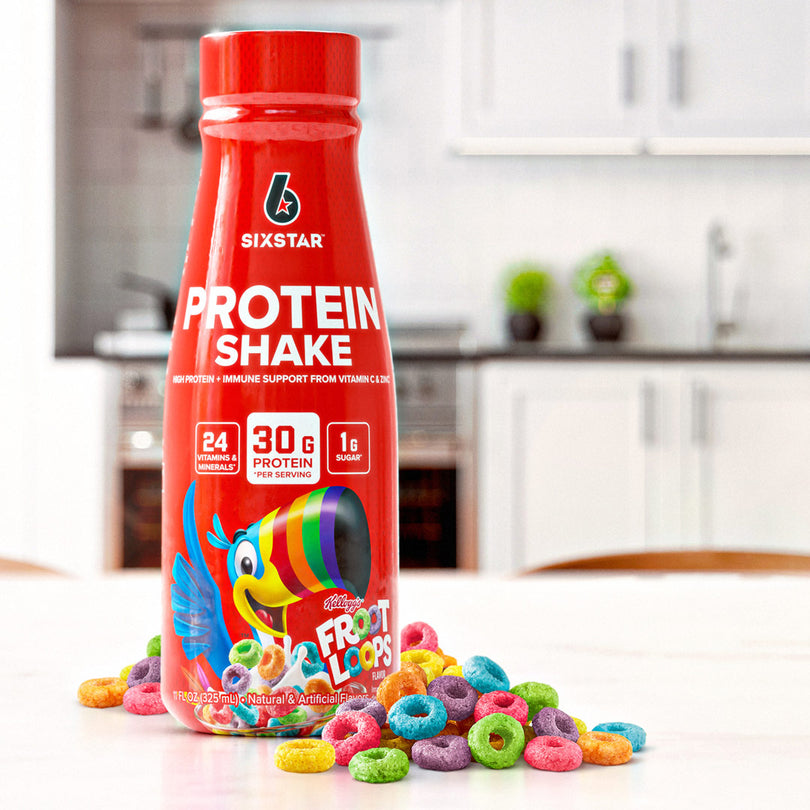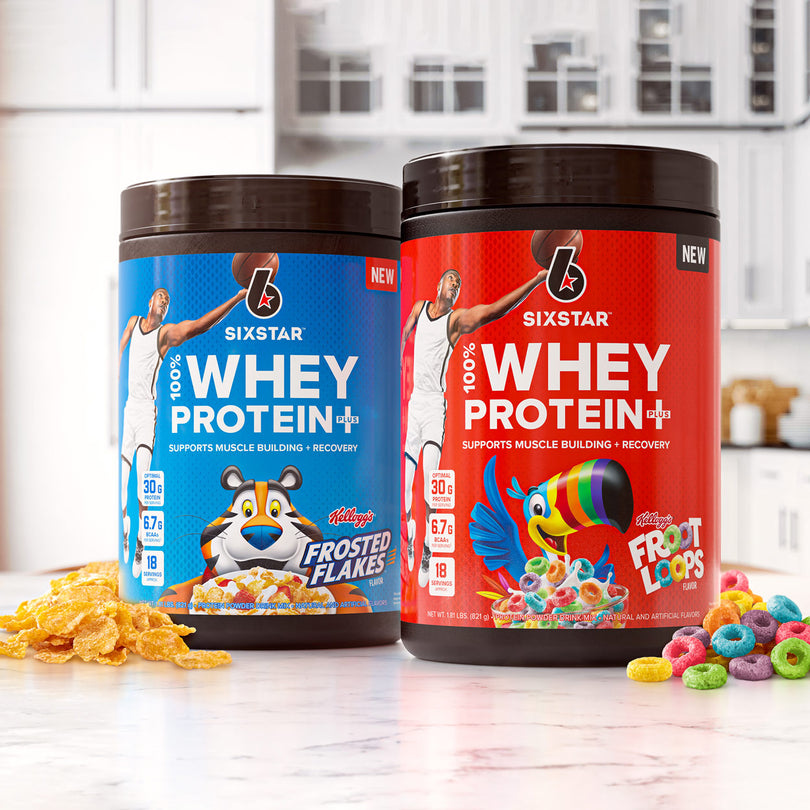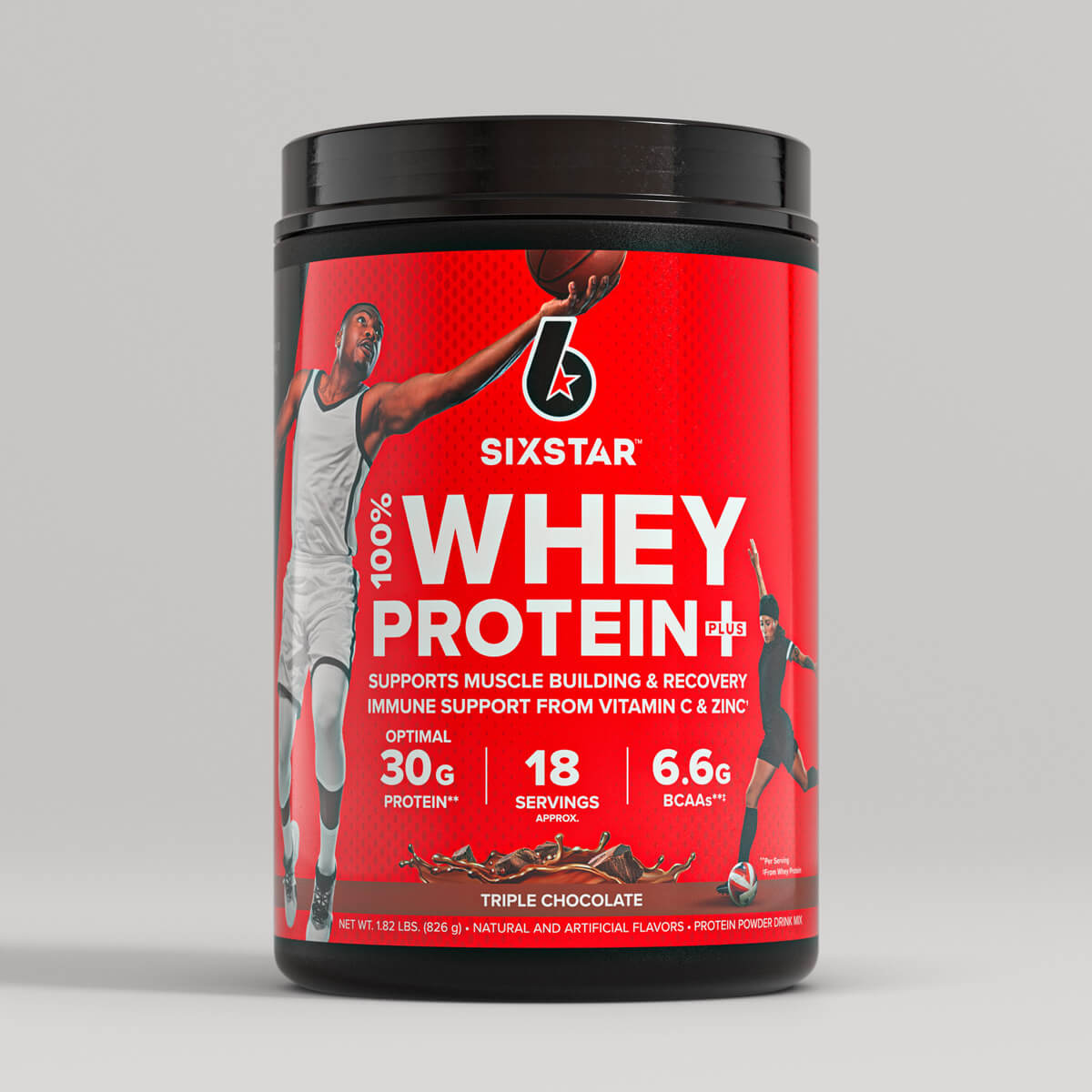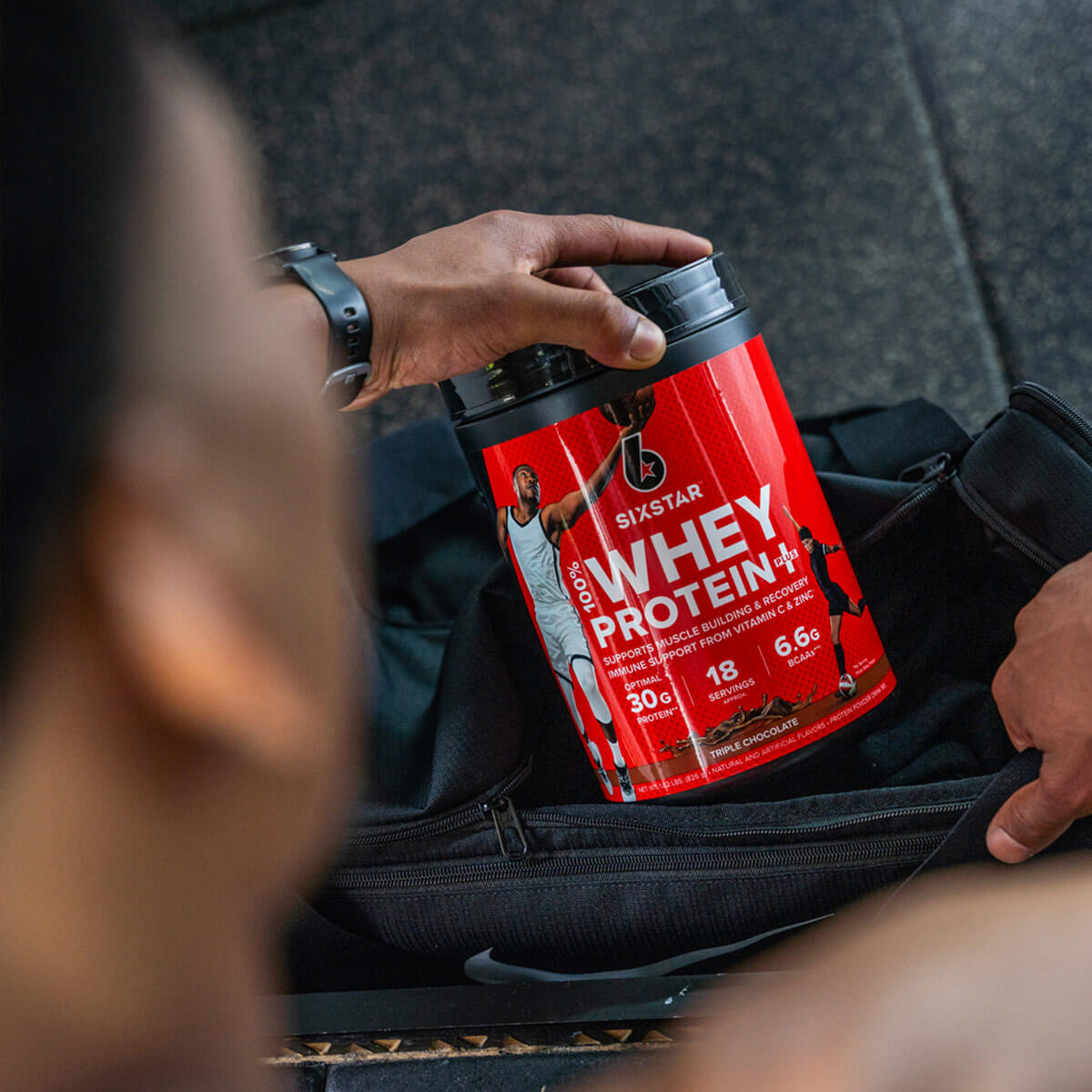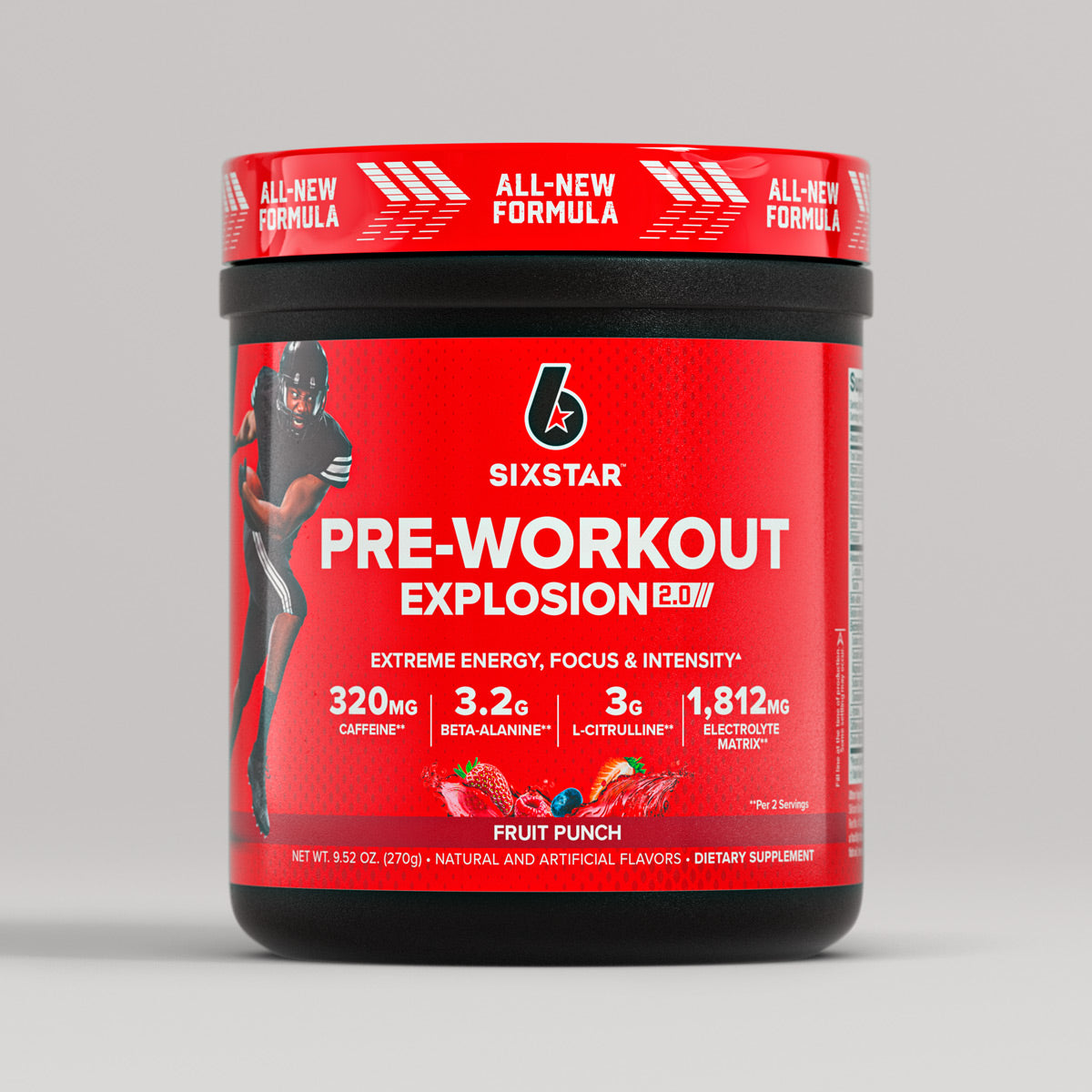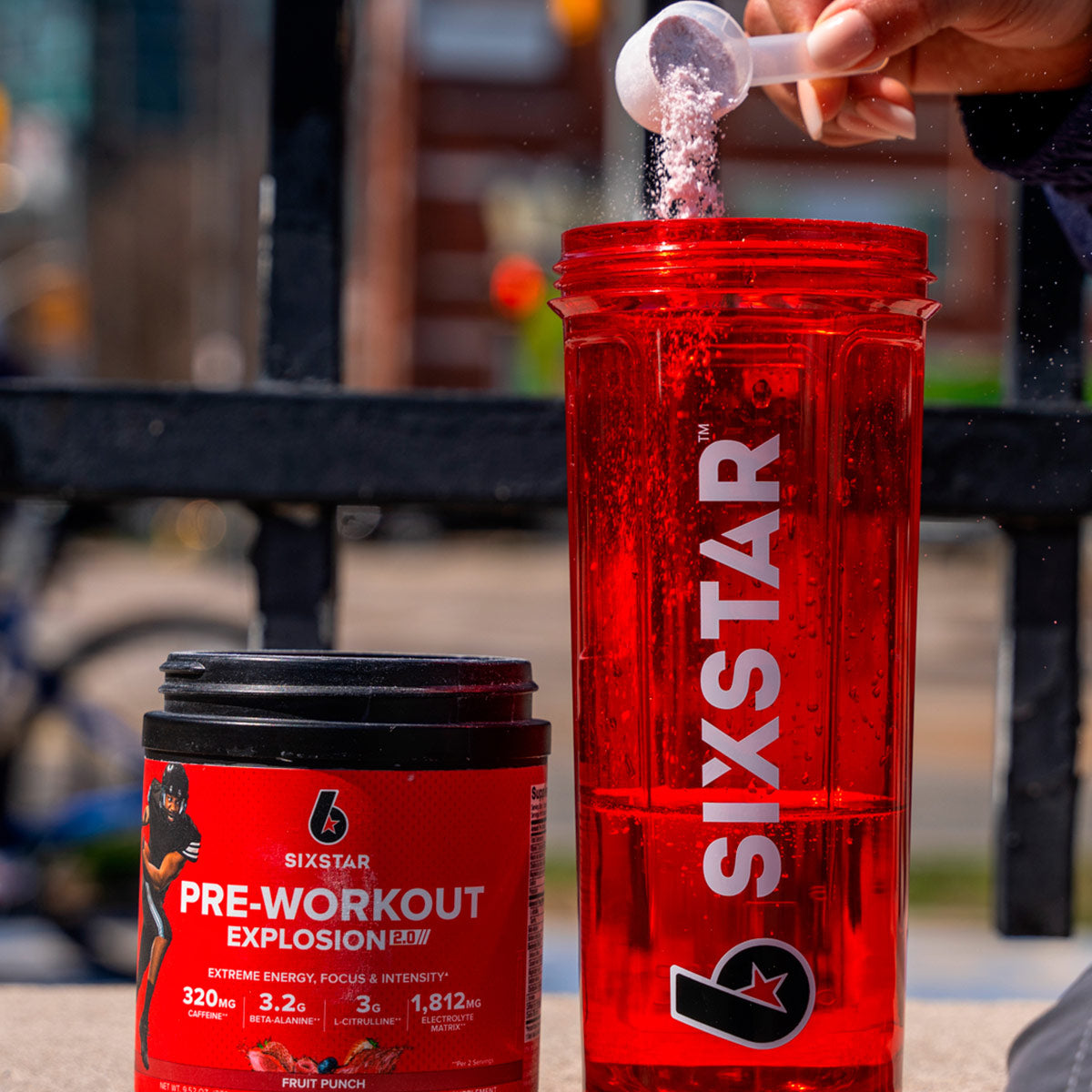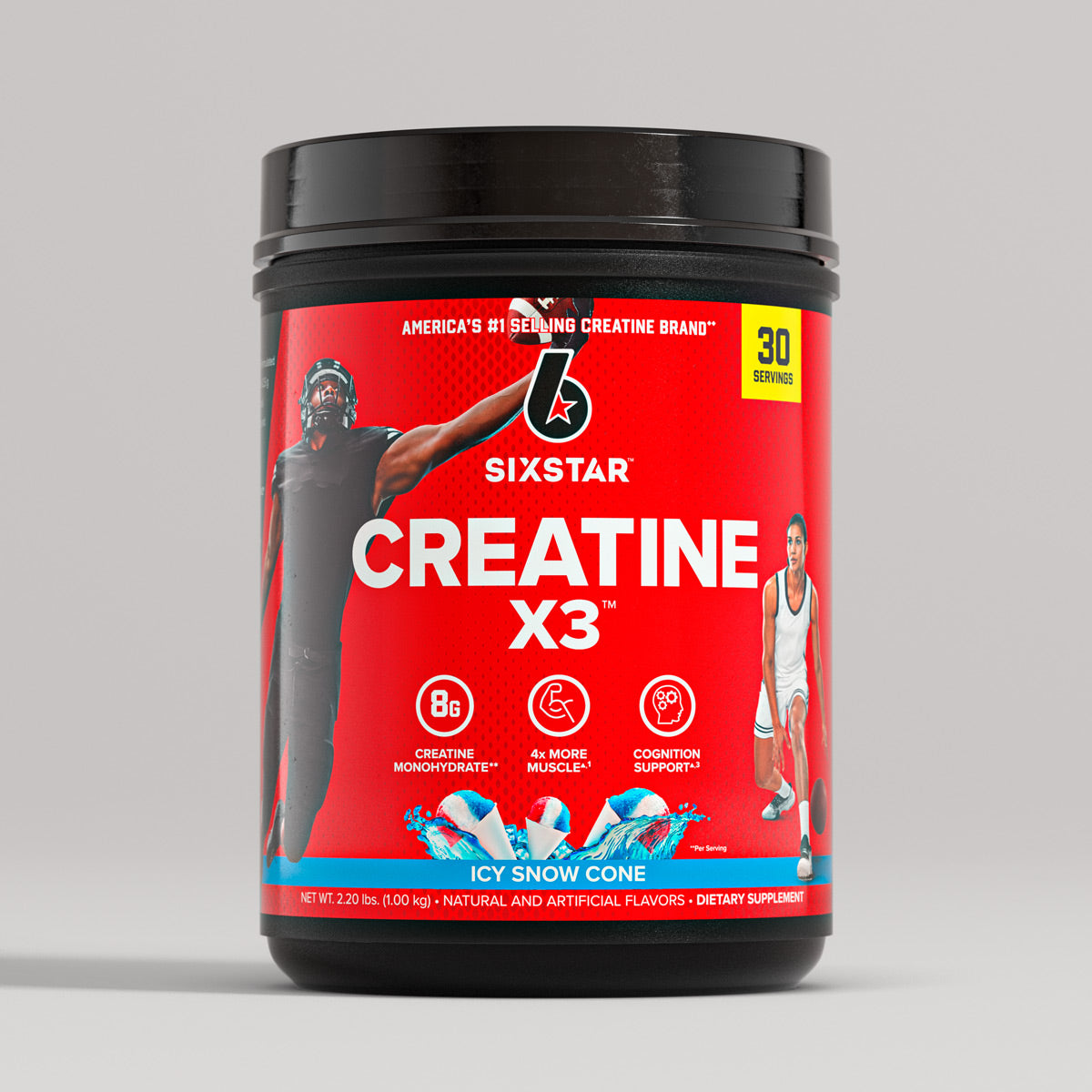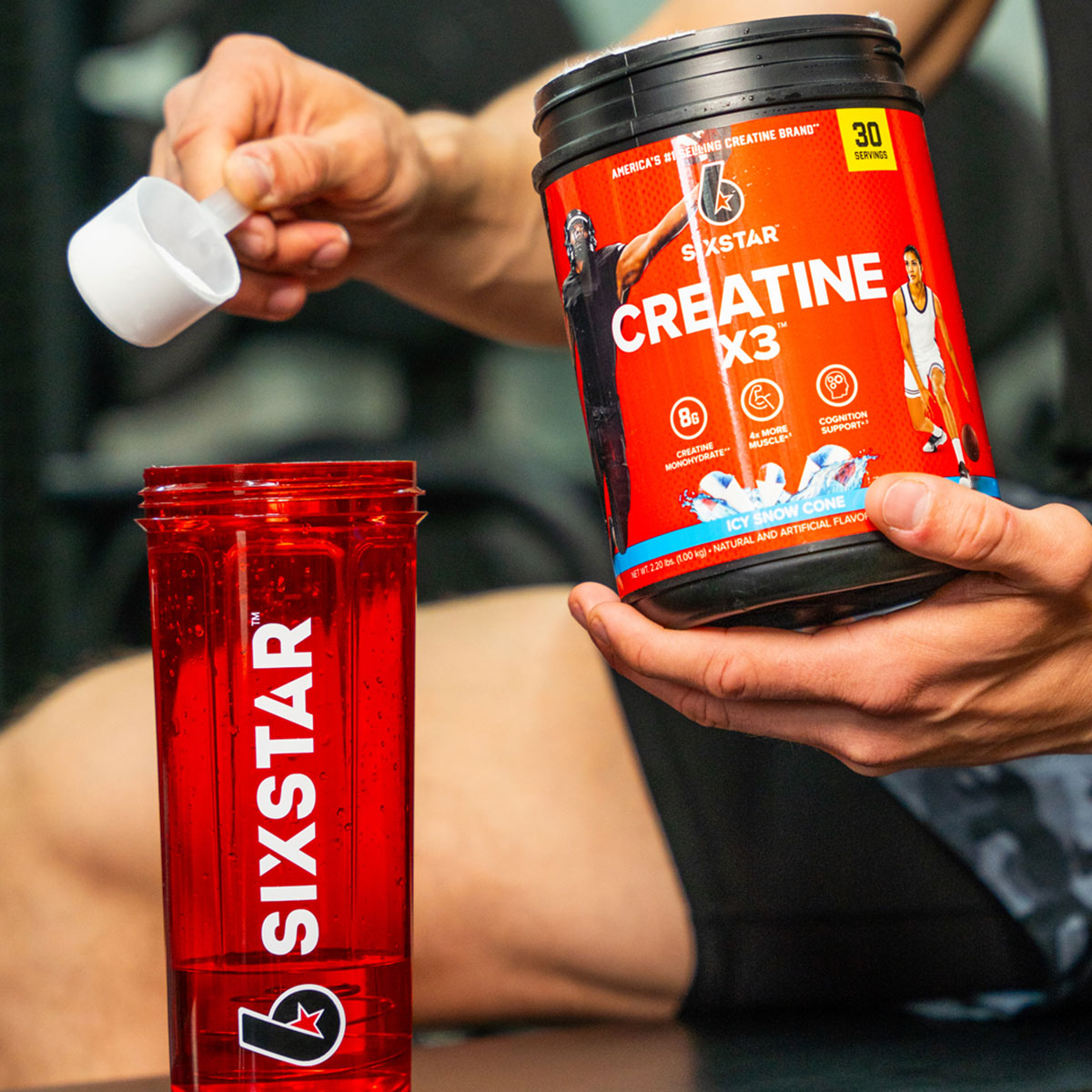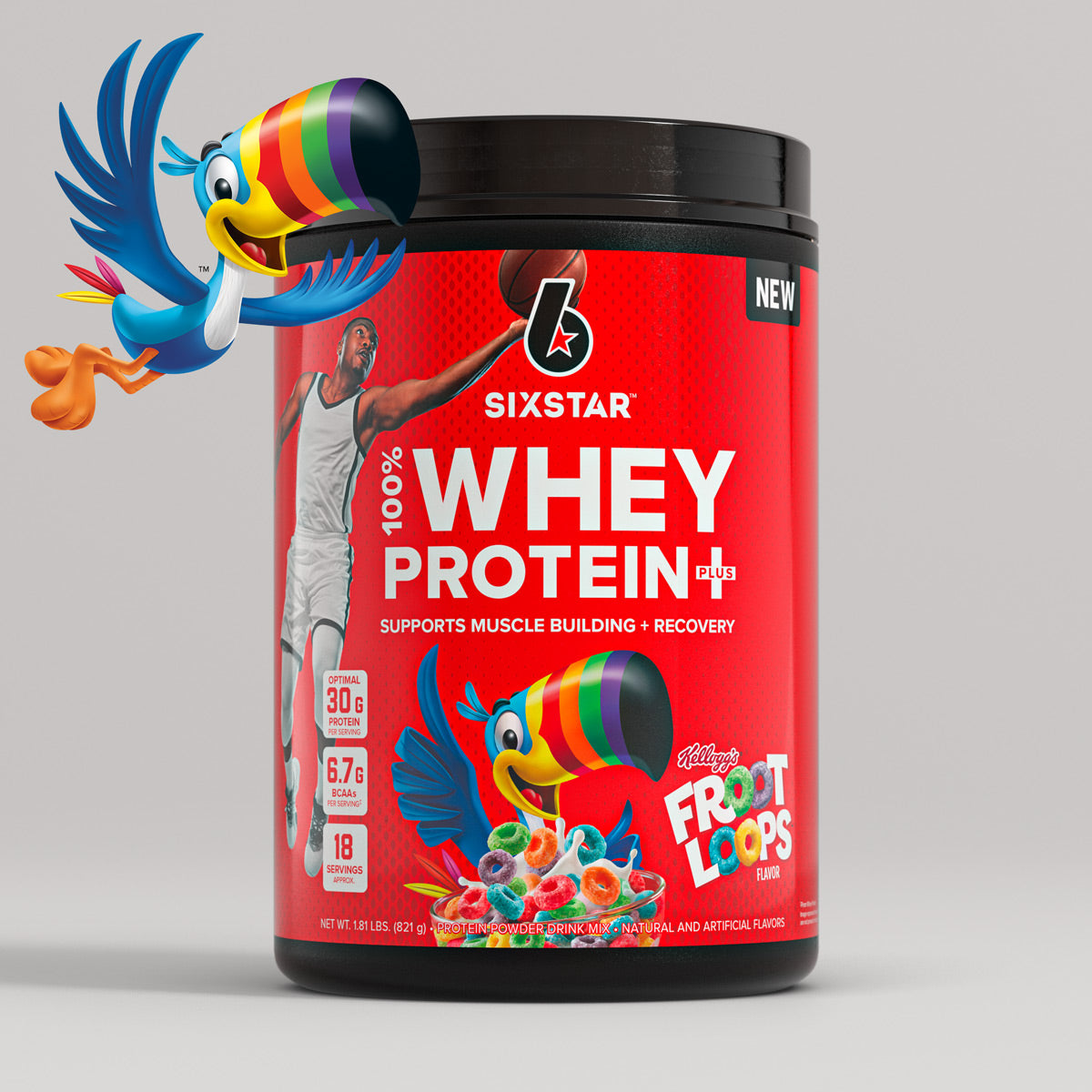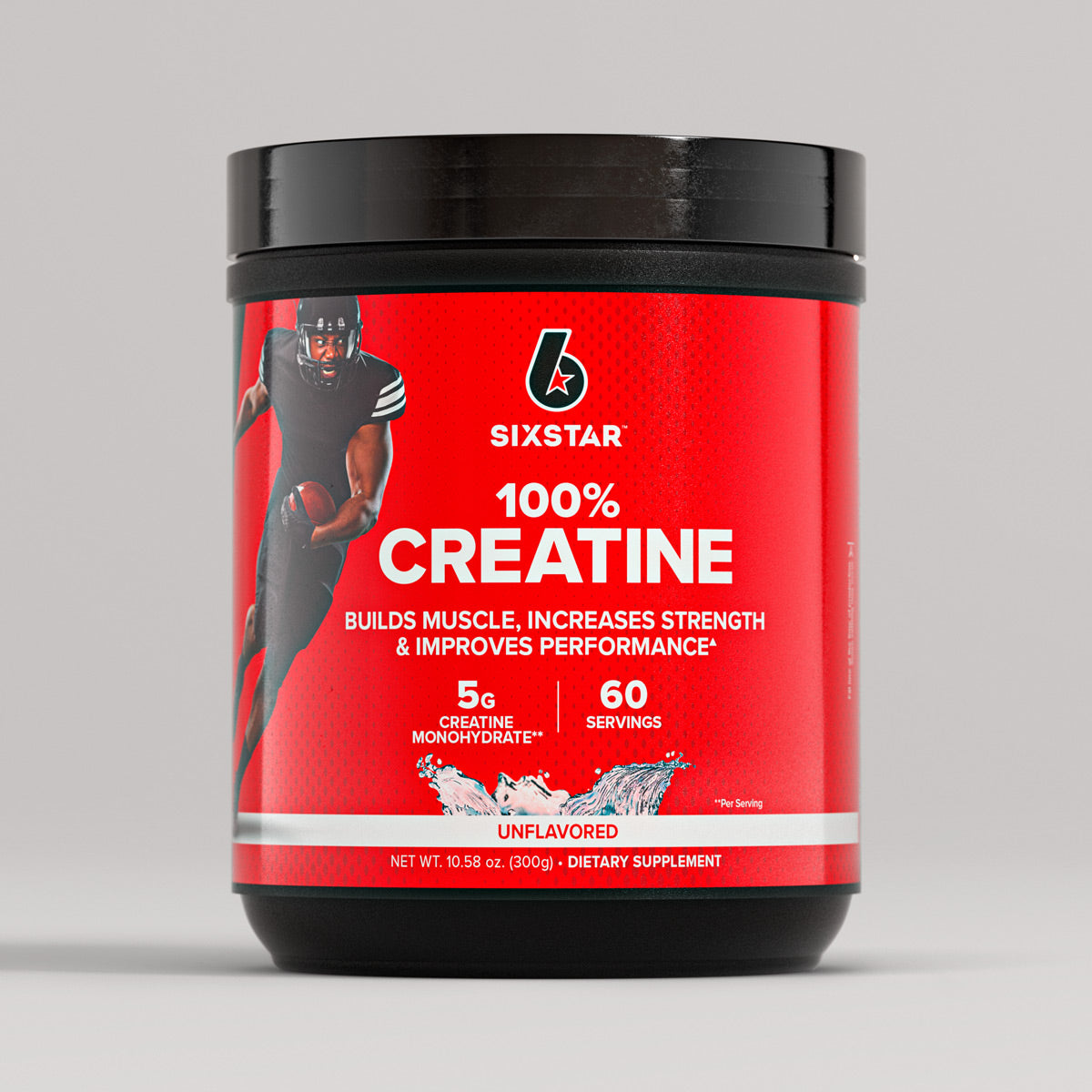“To keep the body in good health is a duty, otherwise, we shall not be able to keep the mind strong and clear.” — Buddha.
The importance of exercise cannot be overstated however there are days when going to the gym or working out at home is challenging. A pre-workout can be a great way to get over that feeling. It is important to select a pre-workout that works best for your body type. Let’s answer some common questions about pre-workouts in this article.
What is a pre-workout?
Pre-workout also known as “pre-workout supplements”, is a dietary supplement created to boost energy, enhance physical performance, and help with endurance. Homemade DIY recipes or protein shakes have been included by weightlifters and bodybuilders for a long time. Realizing the benefits; it has become a routine for professional athletes, trainers and gymgoers to grab a pre-workout before hitting the gym.
Pre-workout contains a diverse range of ingredients that help fitness enthusiasts to achieve their goals as per individual body requirements. It usually comes in a powder form that can be mixed with water, like a protein powder.
What are the common pre-workout ingredients?
1. Caffeine
If you are looking for that boost in energy levels and focus during your work out sessions, caffeine is your go to supplement. Pre-workout generally contains a lot of caffeine, more than a cup of coffee. If you take caffeine regularly, you might need more than a scoop to feel the effects.
For healthy adults, the FDA has suggested a serving limit of about four or five cups of coffee (400 milligrams a day)—as an amount not generally associated with dangerous, negative effects. However, it varies depending on how sensitive people are to the effects of caffeine and how fast they break it down.(1)

2. Beta Alanine
If you want to bear the burning sensation of your last few reps and maxing your muscles out to limit, you can trust beta alanine to help you push through it. Beta-alanine combines with the amino acid histidine to form another amino acid called carnosine. Effectively, carnosine buffers the pH decline that causes muscle fatigue and failure, at the same time, building endurance and improving recovery. This pH buffering helps delay and can even prevent muscular fatigue. To ensure the optimal levels of carnosine remain in the body, it is important to take beta-alanine consistently.
Beta alanine helps both in short duration (strength training) and longer duration (cardio based) activities.

3. Arginine
Arginine is an essential amino acid that helps build protein in the body. A positive effect of arginine is production of nitric oxide. Nitric oxide is a vasodilator, helping in promotion of higher circulation of oxygen and anabolic chemicals (proteins, amino acids) necessary for body development and muscle growth.
4. Creatine
Some pre-workout products contain creatine to supply energy to muscles during strength training or high intensity workout. You may also opt for a pre-workout that does not include creatine, that way you can better monitor your intake. Our body uses creatine to make energy, being able to take your workout one step further has the potential to improve your performance and make the road to fitness easy.
5. Betaine
Betaine is an amino acid that not only supports protein synthesis and protects cells during periods of dehydration, but also increases your resistance training performance. Betaine supplementation has recently gained popularity in bodybuilding and fitness communities due to its effects on muscle building, enhanced cellular hydration and increasing endurance.
6. L-Tyrosine
When the body is under stress, our body produces stress hormones adrenaline (noradrenaline or norepinephrine) and dopamine two hormones called catecholamines that might help to reduce stress. Catecholamines are important neurotransmitters in the brain at the time of stress.
Tyrosine helps by supporting the process of making more catecholamines during stressful conditions and helping maintain focus and enhance endurance.(4)
7. BCAA
Leucine, isoleucine, and valine are known as branched-chain amino acids. They get this name because their chemical structure resembles branches of a tree. These are 3 out of 9 essential amino acids that our body cannot make on its own. These amino acids are obtained from the foods that we consume. BCAAs are a popular sports nutrition because of their wide range of benefits. These three BCAA’s make up a good deal of your muscle tissue and provide fuel source during exercise to support endurance. The reason being is that they respond to the stress of a hard workout and will help with energy production.(5)

8. Vitamin B-6
In addition to different types of amino acids, vitamin B-6 is also included in some of the pre-workouts. Vitamin B-6 plays a crucial role in breaking down the muscle glycogen, making it a key player in your body’s energy production. Not only can it help with weight loss it is also crucial for your metabolism, particularly during exercise.(1)
TIMING OF YOUR PRE-WORKOUT
Most pre-workouts include several individual ingredients varying duration of effectiveness. Caffeine, Creatine, Beta-Alanine, Arginine, BCAA’s, and Citrulline are common ingredients you’ll see listed, and each serve a unique purpose, working together to enhance your workout. Typically, it takes a pre-workout between 30 mins to 90 mins to take effect. The greatest impact is seen 60 mins after taking caffeine and 60 to 90 mins after arginine consumption. To maximize the potential of a pre-workout, you want it to reach to their peak in your bloodstream.
Also Read: Pre-Workout for Beginners – All You Need to Know
Caffeine inclusion in your pre-workout is beneficial as it takes typically an hour to reach its peak, and for most people, stays for several hours in the bloodstream. Depending on the timing of your workout, you may want to make sure to have enough time to calm down naturally for sleep.
Arginine helps the blood vessels to expand allowing more blood to flow through them. Depending on the dose and individual, half-life of arginine ranges from 30 mins to 120 mins. It is important to time the consumption to maximise its potential.
Beta- alanine is known to be go to fuel if you are looking for greater focus, better performance, sustained endurance, and better gains. The best time to take beta-alanine is 10 to 20 mins before a workout. This helps athletes and bodybuilders to take advantage of its short-term effects on nervous system and helps to give a jumpstart to muscles on recovery.
FACTORS AFFECTING “KICK IN TIME”?
Although pre work outs are safe to include in your regimen, it is always a good idea to know how it affects different people.
Several factors like individual metabolism, fasting, caffeine sensitivity and body size can influence the time it takes for a particular pre-workout to kick in.
1. Individual metabolism
People are different and hence differ in their rates of absorption and elimination of certain nutrients or substrates for physiological function. One of the main factors affecting pre-workout metabolism is the rate of caffeine absorption and elimination. Other factors include, use of supplements, body size, race, ethnicity, age, and smoking.(6)
2. Caffeine sensitivity and tolerance
Caffeine tolerance refers to the body’s adaptation to daily caffeine consumption, resulting in a need for progressively larger doses to elicit a submaximal physiological response. People who consume more coffee habitually require larger doses of pre-workout to achieve a desired effect.
3. Empty stomach or fed state
Depending on individual’s response to pre-workout, it can be adjusted to what suits you best. Taking pre-workout on an empty stomach can lead to faster absorption and stronger effects, as there is no food that slows down the digestion process in the gastrointestinal tract. However, some individuals can experience discomfort as some ingredients may irritate the lining of the stomach and small intestines.
To mitigate the discomfort while balancing the benefits of faster absorption, try consuming a light snack before taking your pre-workout supplement. If you don’t find that helpful, try eating a moderate sized pre-workout meal 90 to 120 mins before taking your pre-workout.
Also Read: How Does Pre-Workout Work?
4. Food-drug and drug-drug interactions
Research has shown that there are drugs and substrates that inhibit or induces CYP1A2, which alters how body metabolizes caffeine. In case of concern about possible food-drug and drug-drug interactions, you should consult with your primary care physician before using any supplements, especially if you are taking prescribed medications.(7)
IS IT SAFE TO TAKE PRE-WORKOUT EVERYDAY?
Most pre-workouts contain very strong stimulation in the range of 200-350 mg of caffeine per serving. This means pre-workout will make up most of your daily recommended caffeine intake. Pre-workout can interfere with your sleep if you are taking it towards the end of the day.
You should consult your general practitioner to get advice before beginning a new routine.
It is also important to note that some of the common ingredients in pre-workout like betaine and creatine have cumulative effects as opposed to acute effects of caffeine, beta-alanine and citrulline. Hence taking these supplements daily before a workout may be beneficial.
CONCLUSION
Pre-workout supplements have recently been included by athletes, bodybuilders, and gym goers. Their rise can be associated to boosting energy, power, and stamina. To select the optimal pre-workout supplement, consider what your goals are.
Pre-workout supplements are generally taken 30 to 90 mins before your workout to benefit improved muscle strength, leaning gains, cognition, and endurance. They can help your confidence in achieving your goals by providing the boost required to reach your peak performance level and continue to improve your physical abilities.
Finally pay careful attention to how your body requirements and how your body responds to pre-workout and how it makes you feel during your workout. Pre-workout can be a life- changing supplement to your fitness regimen if used correctly!
REFERENCES:
- https://www.ncbi.nlm.nih.gov/pmc/articles/PMC3361498/
- https://www.ncbi.nlm.nih.gov/pmc/articles/PMC4135062/
- https://www.ncbi.nlm.nih.gov/pmc/articles/PMC3844502/
- https://pubmed.ncbi.nlm.nih.gov/21437603/
- https://pubmed.ncbi.nlm.nih.gov/16365096/
- https://pubmed.ncbi.nlm.nih.gov/29514871/
- https://pubmed.ncbi.nlm.nih.gov/36808638/

